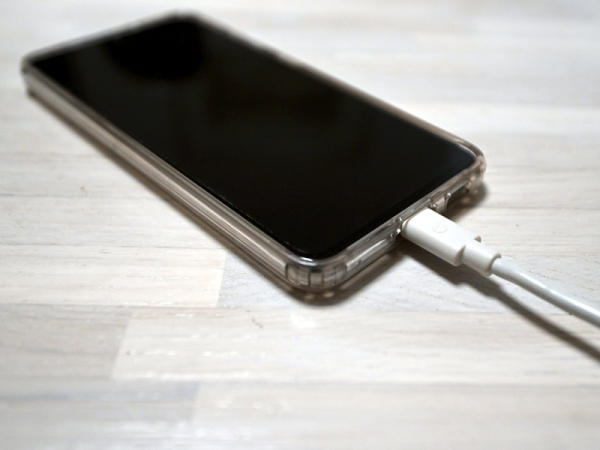
A smartphone being charged in Helsinki in December 2022. Helsingin Sanomat has revealed that police conducted an average of roughly 25 device searches a day in 2023, adding that the number of such searches has more than doubled in less than 10 years. (Markku Ulander – Lehtikuva)
- Previous Article Police: Vantaa school shooter had a 15-name list of targets
- Next Article In Finland, concerns over domestic violence mount as funding cuts loom
POLICE in Finland are analysing the contents of computers, mobile phones and other devices increasingly as part of pre-trial investigations.
Helsingin Sanomat on 9 October revealed that the number of device searches has more than doubled in less than 10 years, with law enforcement authorities conducting an average of 25 device searches a day in 2023.
Out of the roughly 9,400 device searches conducted in the country, 90 per cent were by police and the rest by border or customs officials.
Markku Fredman, a professor of practice at the University of Helsinki, stated to the newspaper that the surge is not a consequence of simply the proliferation of devices but also the lack of legal barriers.
“The threshold for conducting a device search has been stupendously low in Finland,” he remarked.
Device searches provide investigators with access to the images, messages, videos, browsing history and other data – including possibly private and sensitive data – that are collected by modern-day smartphones. The legal preconditions for searching the devices of suspects were established in 2011, when devices and their usage were noticeably different than today.
Finnish police may have to re-examine their practices shortly, however.
The European Union Court of Justice in October issued a ruling that defines the current practices partly in violation with union law, according to Fredman. The court highlighted that accessing the contents of a smartphone can make it possible to draw very precise conclusions about the private life of the user.
A key element of the ruling is that it obligates investigators to obtain a permit from a court of law or another independent administrative body for searching the contents of mobile phones, an obligation that can only be sidestepped in urgent cases. The authority weighing up the permit request must also seek to balance the needs of the pre-trial investigation and the fundamental rights of the subject, under the ruling.
In Finland, no such permit has been required.
The Finnish legislation has enabled police to conduct a device search whenever the maximum punishment for the offence under investigation is at least six months in prison. The hurdle has been so low that device searches have been possible in virtually any pre-trial investigation, including into acts of vandalism investigated as criminal damage, for example.
The evidence collected from devices can determine the success of a pre-trial investigation, a police spokesperson reminded Helsingin Sanomat.
“Device searches are carried out as part of investigations into various offences, but especially as part of investigations into more serious offences,” said Kimmo Ulkuniemi, a chief superintendent at the National Police Board.
The searches are common especially in pre-trial investigations into drug, sexual and violent offences.
Aleksi Teivainen – HT
- Previous Article Police: Vantaa school shooter had a 15-name list of targets
- Next Article In Finland, concerns over domestic violence mount as funding cuts loom
Source: www.helsinkitimes.fi
